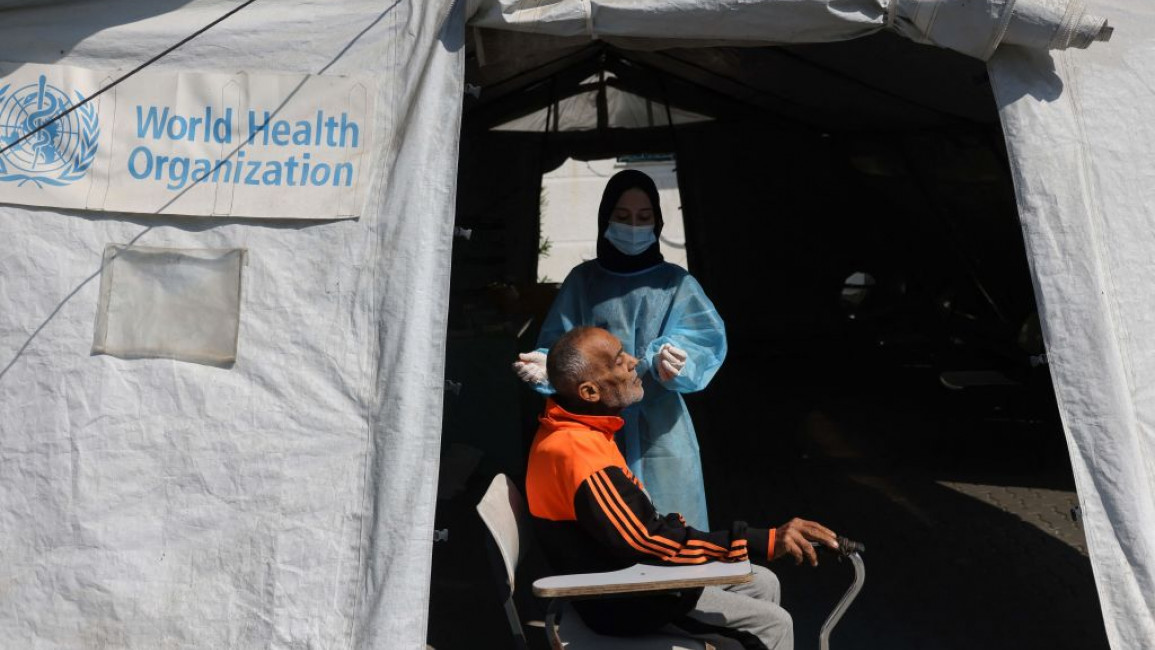#WorldHealthDay: UN, WHO pay tribute to doctors and medical staff in MENA
In honour of World Health Day 2022, officials from the UN and World Health Organisation (WHO) paid tribute to medical staff in the Middle East and North Africa (MENA) region.
Senior UN official Mark Cutts took to Twitter on Thursday to thank “the doctors, nurses, and healthcare workers in Ukraine, Syria and Yemen and around the world who risk their lives every day to help keep others safe”.
“Let’s work together for a safe, healthier world for all #OurPlanetOurHealth,” wrote the UN Deputy Regional Humanitarian Coordinator for Syria.
World Health Day has been celebrated since April 7 1950, two years after the WHO was established to honour the organisation's birthday. This year’s theme “Our Planet, Our Health” was created to spotlight the link between the state of the planet and the health of communities in the wake of the Covid-19 outbreak.
On #WorldHealthDay we pay tribute to the doctors, nurses and healthcare workers in #Ukraine, #Syria, #Yemen and around the world who risk their lives every day to help keep others safe
— Mark Cutts (@MarkCutts) April 7, 2022
Let’s work together for a safer, healthier world for all#OurPlanetOurHealth pic.twitter.com/D5D4mLyPWd
WHO representative for the occupied Palestinian territories, Rik Peeperkorn, expressed his sincere gratitude to fellow medical professionals in Gaza and the occupied West Bank at a panel event on the strength of health care systems “Beyond Covid-19”.
He said: “Covid has [made clear] the inequalities in health care around the world. It showed the vulnerabilities of our public health sectors, including in Palestine.
“The issue is how do we empower our communities to have more control over their own health and over their own environment.”
WHO Regional Director for Africa Dr Matshidiso Moeti released a statement on Thursday highlighting the predominance of climate-related public health events in Africa.
“During the past two decades, most public health events have been climate-related, whether they were vector- or water-borne, transmitted from animals to humans, or the result of natural disasters.
"With Africa’s population projected to grow to 2.5 billion by 2050, we can expect burgeoning urbanisation into areas exposed to natural hazards, and a concomitant increase in associated injuries, disease, and deaths. As such, I urge our Member States to urgently initiate adaptation and mitigation actions."
Africa is experiencing an increase in climate-linked emergencies. This #WorldHealthDay, the theme "Our Planet. Our Health" reminds us that human well-being and our planet are deeply linked. The #climate crisis is also very much a #health crisis. https://t.co/nOZaVsANkE
— Dr Matshidiso Moeti (@MoetiTshidi) April 7, 2022
Covid-19 has caused significant disruption to already overwhelmed and unfunded health care systems in the Middle East and North Africa.
As of June last year, 45 percent of countries in the region reported disruption to their delivery of communicable disease (passed between people or animals) treatment and 28 percent to non-communicable disease (an infection that is not transmissible) treatment, according to data from the World Bank.
Several nations, including Tunisia, Oman and Lebanon, have documented a hike in excess deaths over the past year, indicating that the coronavirus compounded existing health care inequalities.
The New Arab was sent this statement from the head of the MSF mission in Lebanon, Julien Raickman, to mark World Health Day: “With years of conflict and instability, privatisation of the health care system and poor investment in health care, many people in the region are struggling to get the care they need.
"In Lebanon, our teams are seeing a growing number of people looking towards humanitarian actors to access health care. It is imperative that people are able to access medicines and treatments, and that violence or cost does not prevent them from doing so.”


![President Pezeshkian has denounced Israel's attacks on Lebanon [Getty]](/sites/default/files/styles/image_684x385/public/2173482924.jpeg?h=a5f2f23a&itok=q3evVtko)



 Follow the Middle East's top stories in English at The New Arab on Google News
Follow the Middle East's top stories in English at The New Arab on Google News


